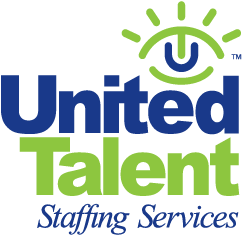As a manager, the idea of incentives may sound appealing. Offer employees rewards, they will work harder, and the company will flourish. Unfortunately, the reality is never that straight-forward. An effective incentive program must be thoughtfully planned and executed.
Types of Incentives
Generally, employee incentives can be grouped into the following categories.
Financial Incentives
Financial or compensation incentives include raises, bonuses, profit sharing, stock options, cash gifts or gift cards, employee discounts and points programs.
Privilege Incentives
It is more difficult to put an exact cash value on privilege rewards. Examples are better parking, premium office space, flexible working hours and additional time off.
Recognition Incentives
Recognition incentives may range from Employee of the Month awards to thank you notes to public shout-outs. Some companies offer Walls of Appreciation or Kudos Boxes.
Appreciation Incentives
This type of incentive usually applies to teams or the entire company. The following would apply sponsored family events, special celebrations, continuing education opportunities, free meals and/or snacks and on-site services.
Best Practices
Despite good intentions, incentive programs can backfire. It is easy to accidentally create a system where employees are motivated by awards rather than the good of the company. And, entitlement and jealousy often rear their ugly heads.
Use these three tips to keep your incentive program on the right track.
Focus on Intrinsic Not Extrinsic
It is important to recognize correct behavior, not just results. Intrinsic motivation is triggered from within a person. They want to achieve, do the right thing and help the organization succeed. Extrinsic motivation is driven by external rewards such as money, praise or awards. A good rule of thumb is to avoid recognizing workers on a single measurement, such as a number of sales calls or quantity of goods produced. These metrics often result in cut-throat competition, reduced cooperation and lower quality. (Forbes, 2016)
Build Trust
An effective incentive program should be as transparent and fair as possible. Rewards that seem to apply only to corporate “pets” or those in upper management will demotivate rather that motivate. Supervisors should not be the only ones allowed to give awards; allow co-workers to recognize their co-workers and their managers. A good rewards program should complement a supportive, appreciative culture that employees want to join.
Mix It Up
If your workers receive a $1,000 bonus every year, they will be angry if the gift drops to $500. It simply is a fact of human nature. To counteract this trend, try to make awards both random and frequent. Switch-up the types of incentives offered and tie them to special achievements. However, there is no need to make incentives look like a scare resource either. You want your employees to know you appreciate them. Sometimes, even a simple “Thank You” is enough.
Is your organization looking to add talented and motivated employees to your team? A recruiting firm can assist you with your hiring needs. United Talent Staffing Services has been serving West Virginia and surrounding states for five decades. Let us help you Find the Right People today!


